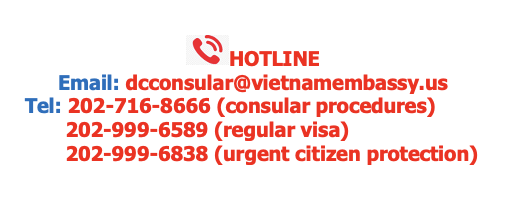VN and U.S discuss bilateral commercial relations
Washington, May 28 (VNA) -- Vietnamese and U.S. officials have discussed measures to settle the pressing issues relating to "Basa" catfish, entry visas for Vietnamese business people into the U.S., and the intellectual property right.
The discussions took place in Washington D.C. during a visit to the U.S. from May 19-31 by a delegation from the Vietnamese Trade Ministry led by Deputy Minister Luong Van Tu.
This was the first official delegation from the Vietnamese Trade Ministry designed to inquire into the U.S. market since the Bilateral Trade Agreement (BTA) between Viet Nam and the U.S. came into effect on Dec. 10 of 2001.
The delegation is composed of representatives from relevant ministries, the Government office and businesses involved in tourism and production or business of garment and textiles, fruit and vegetables, handicrafts, wickerworks, tea, coffee, seafood, and machinery.
The deputy minister had working sessions in Washington D.C. from May 19-21 with Undersecretary of Commerce Timothy Hauser, Vice Commerce Representative Huntsman, and officials from the Office of U.S. Commerce Representative, the U.S.-Viet Nam Commercial Council, and the Association of Garment, Textitles and Footwear.
The two sides compared notes on bilateral trade between the two countries.
The U.S. side pledged to consider support to boost trade between the two contries and create conditions for Vietnamese business people to do business in the U.S. without any discrimination.
They also expressed U.S. support for Viet Nam in joining the World Trade Organisation (WTO) and committed to grant Viet Nam technical assistance in the process of implementing the BTA and joining the WTO.
Regarding the "Basa" catfish-related issue, the Vietnamese side once again came out strongly against the U.S. Farm Act that bans exporters of "catfish" to the U.S. from using the name "catfish" unless it belongs to the American species "Ictalurridae", reaffirming the act runs counter to the BTA.
On garment and textiles, the U.S. side agreed not to apply quotas onto Viet Nam's products during the transitional period. In this regard, Viet Nam held that with growing exports of garment and textiles, it would increase imports of cotton, chemicals and other materials from the U.S. in service of its product of for-export garment and textiles, and could afford U.S.-made Boeings.
In New York, the delegation also called at the Mayor's Office and the International Bussiness Office on May 22.
During their stay in Washington and New York, the delegation met with executives of companies involved in import-export activities, garment and textitles, farm produce, handicrafts, wickerworks and footwear.--Enditem



